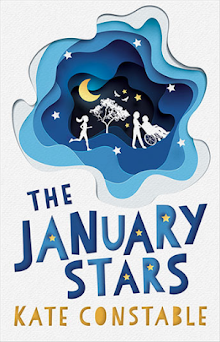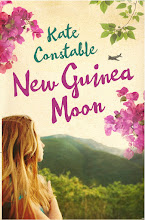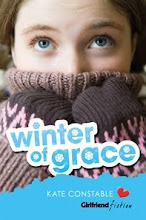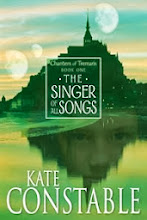It's been a long time since I posted anything about the Western Bulldogs; frankly, it was too depressing. We finished fifteenth out of eighteen teams last year. That's not very good, even I have to admit that.
BUT... there are some grounds for cautious optimism. I don't think we'll play finals this year, but I have reason to believe we'll be better than we have been for the last few seasons. Here's why:
1) The hoops are back
See the jumper in the picture above? Them's the hoops. Goodbye Robodog, welcome back to a sensible, proper, stylish football jumper. Anyone would play better in a great jumper like that. (The hoops actually came back last year, it's just taken a little while to start working...)
2) Footscray Football Club is back
This year, the Bulldogs have their very own VFL team. This means that our young players can play the positions we want them to play, not what might suit our affiliate club, who are only interested in winning the VFL finals, not the long-term development of OUR club. Also, FFC will play some games at the Whitten Oval. This is a victory for nostalgic fans who miss the old ground, our spiritual home. Can't wait.
3) We finished well last year
Yes, I know we ended up fifteenth, but it's also true that we won five games in the second half of the year, and had closer-than-expected finishes to a few more. Things seemed to be on the up; even in the games we lost, we were a lot more competitive.
4) How good do those kids look?
Libba is already elite, and should have been All Australian last year. Wallis is coming good. Jordan Roughead has quickly become a stalwart down back. But also keep an eye on Macrae (silky skills, and grew an extra 3cm over the summer!), Stringer (a beast!), Hunter (sooo smart), Hrovat (pronounced ROVE-at), Talia (maturing in the backline).
The most satisfying part of watching the kids is that quite a few of them are father-sons (Libba, Wallis, Hunter) which means we got them for a steal. Bonus: Talia is a grandfather-grandson! His grandpa played in the 1954 premiership!
Prediction: Tom and Tony Liberatore will be the first father-son Brownlow medallists. Yes, Libba jr is really that good.
It's still a development year, but hopefully, hopefully, we will start to see some signs that it's all coming together. Believe in Macca. He's got a plan.
26.2.14
24.2.14
Did JK Rowling Read This Book?
I have spoken before of my love for Monica Dickens, so I couldn't resist this first edition (1948), though I was pleased and surprised to discover today that Joy and Josephine is still in print. It's a lively, delightful version of the swapped-at-birth story; adopted at birth by the Abingers, grocers on the Portobello Rd, Joy/Jo might be the foundling daughter of a poor Irish girl, or she might be the niece of wealthy, titled, Sir Rodney Cope. She gets to taste the possibilities of both identities, and decides (or at least I think she'll decide -- I haven't quite finished it yet) to live out her life as herself.
But that's not what caught my eye! I offer for your consideration page 151:
Tonks AND Lupin?? In the space of two pages? Coincidence? Or -- is it witchcraft?
But that's not what caught my eye! I offer for your consideration page 151:
"You'd have been captain of Second Netball this year, wouldn't you? I wonder who they -- gosh! Tonks will be it, I suppose." ... (S)he sped away to break the glad news to Tonks Tonkinson...And then p 153:
There was nothing unusual about a girl of nearly fifteen starting regular work... Joan Lupin (was) already earning good money at the button factory...
Tonks AND Lupin?? In the space of two pages? Coincidence? Or -- is it witchcraft?
19.2.14
Phases
What's happening to me? I seem to have lost my hunger for kids' books at the moment. All I want to read is adult fiction; it's only grown up novels catching my eye. Is it a reaction to spending the holidays in the company of my children? Is it a subconscious longing for the company of adults, albeit in fictional form?
Look at that list over there to the right: hardly a kids or YA title among them, and the ones that are there are mostly book group assignments. Meanwhile, I have a still higher stack beside my bed, waiting -- books like Hannah Kent's Burial Rites, Margaret Drabble's The Pure Gold Baby, and Sumner Locke Elliott's Careful He Might Hear You.
I suppose at least the last one does have a child protagonist.
Or am I just turning into a grumpy old lady reader?
Look at that list over there to the right: hardly a kids or YA title among them, and the ones that are there are mostly book group assignments. Meanwhile, I have a still higher stack beside my bed, waiting -- books like Hannah Kent's Burial Rites, Margaret Drabble's The Pure Gold Baby, and Sumner Locke Elliott's Careful He Might Hear You.
I suppose at least the last one does have a child protagonist.
Or am I just turning into a grumpy old lady reader?
12.2.14
What We Pass On
It's stating the obvious, but we try to give our children what we value the most in our own lives.
I have some friends who have made certain that their children are getting music lessons -- one is learning violin, another has started flute, another studies trumpet. Each of these friends (at the very least) had music lessons themselves as a child; and for two of them, music has remained an important, even a defining, experience in their lives. Me, I never learned an instrument; I remain largely indifferent to the joys and benefits of music. So it's no coincidence that I haven't pushed music lessons on either of my children. Evie is still doing keyboard, but I'm lax about enforcing practice, and when Alice chose to give up last year, I didn't try to argue her out of it.
Other friends have made sure that their children take part in organised sporting activities: netball, football, tennis. Again, these are people who enjoy and value physical activity and team sports in their own lives. Michael has admitted that if he had sons, he would have tried harder to enrol them in cricket or football; as it is, we haven't tried too hard (ahem).
So what the hell have I given my children, I ask myself, since I'm obviously such a crap and lazy mother? No surprises here: the one thing I have persisted with is books. I still regularly read aloud to my children, even though they are now both capable of reading for themselves (and do). My idea of a fun excursion is "let's go to the library!" or "let's check out the second hand bookshop!" I am more inclined to buy a spontaneous book-present than take my girls clothes shopping.
I'm not saying that my other friends don't value books, or read aloud to their children: they do. But it's interesting to me that, even when other things can seem too hard, I will never stop pushing the words.
I have some friends who have made certain that their children are getting music lessons -- one is learning violin, another has started flute, another studies trumpet. Each of these friends (at the very least) had music lessons themselves as a child; and for two of them, music has remained an important, even a defining, experience in their lives. Me, I never learned an instrument; I remain largely indifferent to the joys and benefits of music. So it's no coincidence that I haven't pushed music lessons on either of my children. Evie is still doing keyboard, but I'm lax about enforcing practice, and when Alice chose to give up last year, I didn't try to argue her out of it.
Other friends have made sure that their children take part in organised sporting activities: netball, football, tennis. Again, these are people who enjoy and value physical activity and team sports in their own lives. Michael has admitted that if he had sons, he would have tried harder to enrol them in cricket or football; as it is, we haven't tried too hard (ahem).
So what the hell have I given my children, I ask myself, since I'm obviously such a crap and lazy mother? No surprises here: the one thing I have persisted with is books. I still regularly read aloud to my children, even though they are now both capable of reading for themselves (and do). My idea of a fun excursion is "let's go to the library!" or "let's check out the second hand bookshop!" I am more inclined to buy a spontaneous book-present than take my girls clothes shopping.
I'm not saying that my other friends don't value books, or read aloud to their children: they do. But it's interesting to me that, even when other things can seem too hard, I will never stop pushing the words.
5.2.14
The Australian Books I Should Have Read (But Didn't)
When Kate Forsyth kindly asked me to contribute a guest post to her blog, she suggested that I could write about my favourite Australian children's books.
This got me thinking about all the Australian children's books I could have read, and should have read, and would have loved, had I read them as a child -- but didn't.
This is what I sent to Kate:
This got me thinking about all the Australian children's books I could have read, and should have read, and would have loved, had I read them as a child -- but didn't.
This is what I sent to Kate:
Even though I
was born in Australia, and I have been an avid reader all my life, it is a
strange but true fact that when I was growing up, I didn't read Australian
books.
Though I was
born in Melbourne, I spent most of my childhood in the Highlands of Papua New
Guinea, in a tiny town called Mt Hagen. My father worked there as a charter
pilot, flying light planes in and out of isolated mountain villages, carrying
all kinds of passengers and cargo - everything from cattle to coffins, sacks of coffee beans to cans of fish.
Mt Hagen was a
very small town in those days (now it's
the third largest city in PNG) but for
some reason it had an excellent public library, in a dark little building near
the market. It seems so unlikely that such a well-stocked library could
possibly exist that I've tried to research how this could have come about, but
I haven't been able to find out, and the library doesn't seem to exist any
more. My best guess is that it was the result of some philanthropic impulse or
charitable exercise: send a
library to the Highlands! Whatever the case, I was the beneficiary. I read my
way through shelves of wonderful children's authors: Joan Aiken, Louisa May
Alcott, Arthur Ransome, Laura Ingalls Wilder, E. Nesbit, Leon Garfield, PL
Travers, CS Lewis, Elizabeth Goudge and so many more. I've spent many rewarding
years since, trying to recreate that library via second hand bookshops, with
some success!
With no
television, few shops or recreational facilities, there wasn't much to do in Mt
Hagen except to read, and I read everywhere: at the table, under the blankets,
sitting in trees. Like many children, I read my favourite books over and over
again. Sometimes I borrowed the books just to put them under my pillow at
night; I loved them so much and knew them so well that there was no need to
open the covers.
I was especially
drawn to books about magic, ghosts and time travel, memories and dreams. Some
of my particular favourites were Tom's Midnight Garden, by Philippa Pearce, The
Little White Horse by Elizabeth Goudge, CS Lewis's Narnia books, and A
Traveller in Time by Alison Uttley. Many of the books I loved best were by
English authors, and when my family travelled to the UK (so my father could
visit his family for the first time since he was twenty), I felt an immediate
and intense bond with the English countryside.
I instantly felt
that I knew this landscape, deep in my bones: the damp green fields, the
spreading trees and sheltering hedgerows, the stone cottages and
bluebell-filled woods. This was home,
this was where I belonged, and when we left a few weeks later, I cried for
days.
Weirdly, I felt
no such connection to the Australian landscape when we returned to Melbourne on
leave, even though I'd been born and spent the first six years of my short life
there. I wonder now whether, after reading all those English books, the
landscape of England had seeped into my imagination as a place brimming with
magical possibilities. In contrast, the few books I read by Australian authors
all seemed to be sternly realistic, about girls with ponies in sun-scorched
paddocks, or, terrifyingly, about children surviving bushfires or plane crashes
alone. There didn't seem to be a space in the Australian landscape of those
books for magic, or fantasy, or time travel; no ghosts, no history; nothing for
me to hold onto.
How wrong I was!
Of course there
were books, Australian books, that knew about magic; but for some reason, I
never managed to find them. It was only as an adult that I discovered wonderful
books by Australian authors that might have given me the same sense of
wonderful, mysterious power that I'd gleaned from those English fantasy
stories. One of the reasons I wrote Crow Country was to try to add to that
list, and help a new generation of readers to realise how much magic and power
lies in our own landscape.
Here are three
of my favourite Australian books for children and young adults from the era of
my youth, books I wish I'd found:
1.
Playing Beatie Bow, by Ruth Park
How did I manage to miss this book? It was
published in 1980, when I was 13, but for some reason it took me another thirty
years to read it! The time travel element, so hard to get right, is handled
expertly, and the scenes of early Sydney are wonderfully evocative. The love
story is poignant and perfectly pitched.
2.
Pastures of the Blue Crane, by Hesba Brinsmead
Not a magical story as such, but the
descriptions of northern New South Wales are so gorgeous that the writing
thrums. The story of aloof Ryl's discovery of her inheritance and her gradual
connection with her estranged grandfather is very moving. The book's handling
of racial issues was radically progressive at the time, though it seems
awkwardly dated now; but this is still a beautiful book.
3.
The Rocks of Honey, by Patricia Wrightson
Wrightson's books were the books I needed
to read, but somehow never found at the right time. Her sensitive handling of
Aboriginal mythology was revolutionary at the time; although she was criticised
more recently for appropriating cultural content, many Indigenous leaders
applauded her work, and she introduced generations of children to Aboriginal
magic. I could have chosen half a dozen Wrightson titles, but The Rocks of
Honey was one of the first I read and it remains special to me, a simple but
subtle tale of magic and misunderstanding.
Also on Kate's blog, you can find an interview with me and a lovely review of Crow Country. Thank you, Kate, for inviting me, and for sharing such a generous review!
Subscribe to:
Posts (Atom)




















